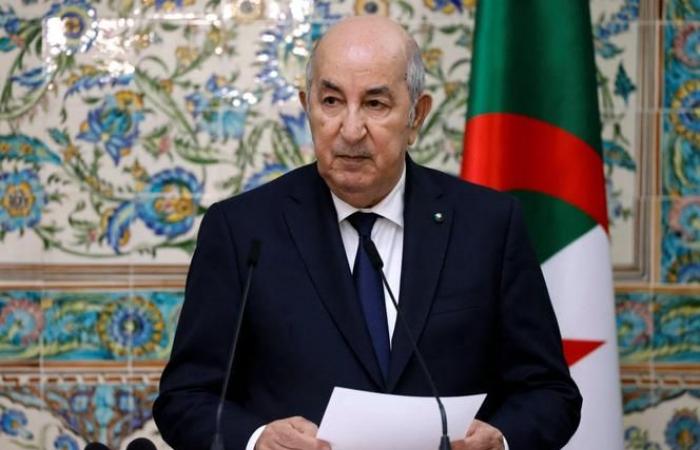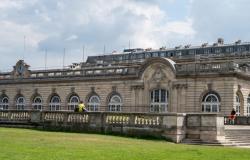
The Algerian President, Abdelmadjid Tebboune, announced in a press release on Wednesday, December 25, “presidential pardon measures for the benefit of 2,471 detainees” et “appeasement measures” pour “eight detainees [en détention provisoire] pending investigation and judgment procedures”. The names of the people concerned and the terms of these measures “appeasement” have not been specified, but some jurists hope that they will consist of dropping the charges and releasing the detainees. “It’s exceptional and unusual”indicates a judicial source.
This unprecedented decision could in theory benefit Boualem Sansal. Arrested at Algiers airport on November 16 as he arrived from Paris, the 80-year-old Franco-Algerian writer is accused of “undermining the integrity of the national territory”. The intellectual in fragile health, according to his lawyer, was transferred to a care unit at the Mustapha-Pacha hospital in Algiers. The arrest of the author of German Village caused a lot of excitement in France. In the midst of a period of tension between Algiers and Paris, the Elysée said “very concerned”. Sa release “would be a very strong signal and undoubtedly the best way to get out of a situation that time cannot make less painful”declares to Monde François Zimeray, his lawyer.
In addition to these calming measures, sentence reductions and “total graces” are designed for fourteen individuals “finally sentenced for crimes against public order”. Here again, the presidential press release does not indicate a name and gives no details.
Read the portrait | Article reserved for our subscribers Boualem Sansal, dissident writer and provocateur
Read later
In Algeria, these common law prisoners are considered “victims, even hostages of a politico-judicial parade”, points out the Algerian lawyer Aïssa Rahmoun, in exile in France and secretary general of the International Federation for Human Rights (FIDH): “This is the best official way to hide the status of prisoner of conscience. » There are currently at least 218 in this case, according to human rights defender Zaki Hannache, now a refugee in Canada and who has been documenting the repression in the country since the Hirak, the popular and peaceful protest movement of February 2019.
“Loosen the grip”
Among these prisoners of conscience could be personalities such as retired general Ali Ghediri, candidate for the presidential election in 2019, the entrepreneur Nabil Mellah, who made his fortune in the pharmaceutical industry, or the artist Franco-Algerian Djamila Bentouis.
With these gestures, the head of state wants “show that Algeria is not a repressive state”assures one of his relatives, Mehdi Ghezzar. “Mr. Tebboune especially wants to loosen the grip after the international pressure he received in the Sansal affair and after the wave of discontent that Algerians demonstrated on social networks”analyzes the activist Saïd Salhi, refugee in Belgium.
Former vice-president of the Algerian League for the Defense of Human Rights (LADDH) refers to the hashtag «Many way» (“I am not satisfied”, in Arabic), which has burst onto social networks in recent days. By using it, Algerians denounce the lack of freedom, repression, but also the economic and social situation in the country. A campaign described as« hostile » by several Algerian newspapers close to the regime.
Read the decryption | Article reserved for our subscribers With the summons of the French ambassador to Algiers, the crisis between France and Algeria reaches a new level
Read later
In response to this hashtag, another was launched – “I am my country” (“I am with my country”) – and taken up by Algerians to affirm their solidarity with the institutions of their country. “Let no one think that Algeria can be devoured by a hashtag, we will protect this country whose people have the blood of martyrs flowing in their veins”President Tebboune even reacted on Tuesday during a meeting between the government and the walis (prefects).
Stay informed
Follow us on WhatsApp
Receive the essential African news on WhatsApp with the “Monde Afrique” channel
Join
Can we consider the measures taken on Christmas Day by the Head of State as a turning point? “We have noticed that presidential “pardons” do not mean a relaxation in repressionunderlines Zaki Hannache. Each phase of release is followed by an even more intense wave of repression, which results in arrests and new arrest warrants. » This time, Saïd Salhi wants to be more optimistic and hopes that President Tebboune's gesture will go “towards more democratic openness and freedom”.






